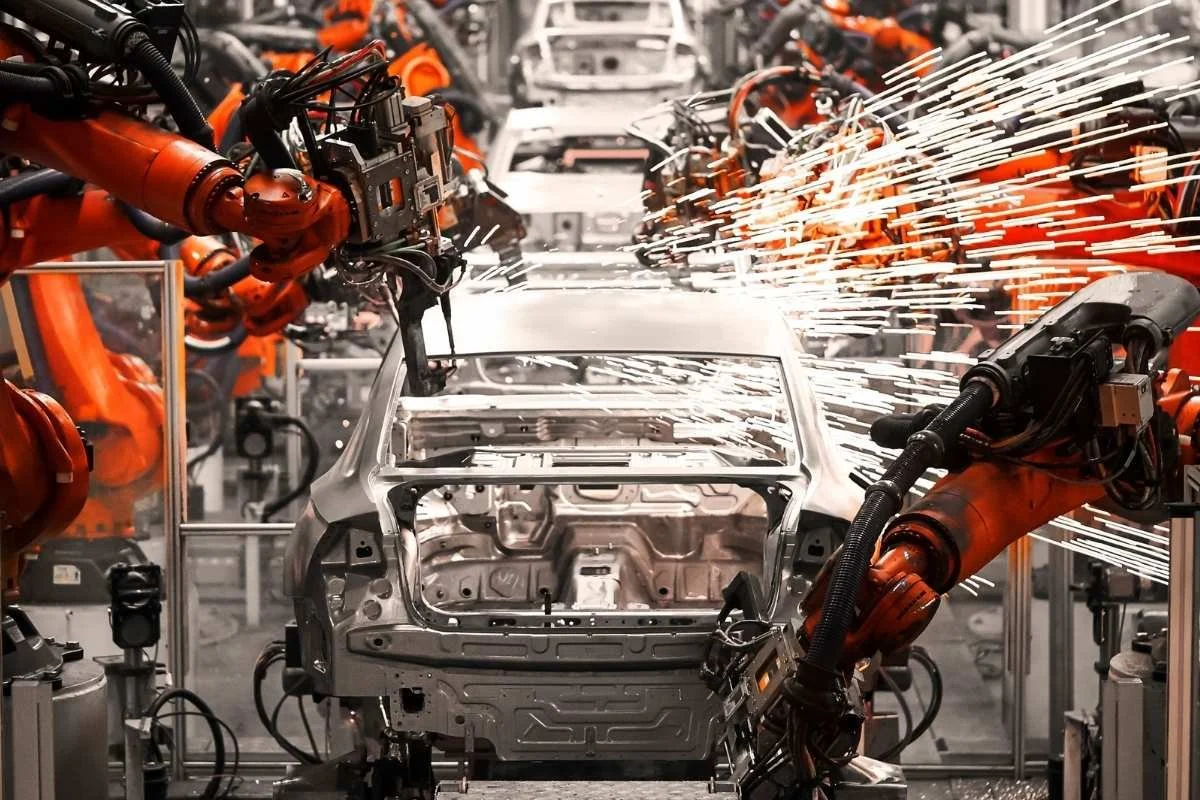
Sustainable Manufacturing
In collaboration with our technical assistance partners, LifeCity helps manufacturers reduce, eliminate, and prevent pollution at its source while supporting workforce development and a stronger economy. Sustainable manufacturing is a key component of a future that gives our grandchildren the same benefits that we enjoy today.
Sustainable manufacturing is important because it addresses the long-term health of both the planet and the economy while still meeting society’s needs. In short, it’s about making products in a way that’s good for business, people, and the environment all at once. Here are just a few reasons your manufacturing facility should consider examining your sustainable practices:
Environmental protection: Sustainable manufacturing reduces waste, pollution, and greenhouse gas emissions, helping combat climate change and preserve ecosystems for which our businesses depend.
Resource efficiency: Sustainable manufacturing uses materials, water, and energy more efficiently which prevents depletion of natural resources and lowers costs.
Economic resilience: Sustainable manufacturers that adopt sustainable practices are often more competitive, attract investment, and adapt better to regulations or resource shortages.
Consumer trust and compliance: Many buyers prefer brands that show responsibility toward the environment and society, which can boost loyalty and sales. Your supply chain partners may begin requiring standards that you report to help meet this increasing global demand for sustainable products. Regulations on emissions, waste, and resource use are tightening; sustainable practices help avoid penalties and prepare for future standards.
Worker and community well-being: Sustainable manufacturers provide cleaner, safer production methods, reduce harmful exposure for employees, and limit environmental harm to surrounding communities.
Sustainable Manufacturing:
Redefining production for efficiency and lasting impact
Get a Free Impact Consultation
28%
Products making ESG (Environmental, Social, and Governance) related claims averaged 28% cumulative growth over five years, compared to 20% for products without such claims.
In essence, sustainable manufacturing ensures we can keep making the things we need without destroying the very systems we depend on to make them. LifeCity supports sustainable manufacturing through three steps:
Step 1) Sustainable Manufacturing Assessment
Our partners provide no-cost, on-site sustainability assessments with a focus on energy, environment, economy, and engagement. Our assessment usually takes about 1 half or full day where we take a tour of your facility to observe opportunities for impact. By providing a year’s worth of utility bills, lists of equipment, and other information found in our assessment intake form, our team is best equipped to identify opportunities for improvement. Students from our partner colleges and universities are engaged and trained throughout these processes to provide them hands-on experience with sustainable manufacturing and consulting sectors.
This assessment includes four sub-assessments based on the E4 Program:
Energy Assessment
Environment / Pollution Prevention (Waste) Assessment
Economic Assessment (Business Development)
Engagement Assessment (Team and Community Engagement)
We prioritize the following industries but can work with any type of manufacturer:
Food and Beverage Manufacturing and Processing
Chemical Manufacturing, Processing and Formulation
Metal Manufacturing and Fabrication
Automotive Manufacturing
Step 2) Recommendations Report for Sustainable Manufacturing
Following the assessment, we will produce your personalized report with recommendations and resources and will support your team during implementation through follow-up meetings. These efforts are fortified by our unique place-based approach to identifying local impact through the Love Your City platform. Through this platform, your team will have an opportunity to organize your green team to help create what we call an Impact Management System (IMS).
Like an Environmental Management System (EMS), an IMS helps create a procedure for your team to continuously evaluate opportunities to improve your social and environmental impact. Historically, these efforts were segregated, but sustainability inherently recognizes the interdependent reality of our world (and businesses). Instead of examining environmental, social, and economic impact separately, we use our assessment to develop a management process that looks at them as a whole, interconnected system.
Step 3) Implementation Support for Sustainable Manufacturing
Using the Love Your City Platform, we can help you manage your social and environmental impact ongoing by helping you define and implement your Impact Management System through routine green team meetings and our sustainability software. Our online system can help you earn badges, set goals, manage projects, capture metrics, and share qualitative and quantitative stories through our dashboard.

“The future of manufacturing lies in circular systems—where waste becomes input, and efficiency drives innovation.”
- Ellen MacArthur, founder of the Ellen MacArthur Foundation
OUR IMPACT
True sustainability is rooted in community. Our impact goes beyond carbon metrics. We help organizations understand how their actions affect the people and places they serve. By combining environmental strategies with social equity goals, we support businesses in creating measurable changes that improve lives, strengthen local economies, and respect the unique needs of each community. From reducing waste to amplifying stories of impact, we’re building a more just and sustainable future: one neighborhood, one organization, one initiative at a time.
125+
manufacturing assessments completed
100K
average annual savings
18M+
lbs of solid waste reduced

“As the leader of my company, I wanted to make a difference not just in our product innovation but in the lives of our employees. By working with LifeCity’s team, I was able to turn operational savings into employee benefits that doubled our savings: lower costs, higher retention rates..”
- Renee Landrieu, Landrieu Concrete and Cement Industries
Schedule a Meeting With One Of Our Consultants
Don't get overwhelmed by the many opportunities to improve sustainable outcomes for your facility, and work with one of our consultants as your outsourced sustainability officer.
How We’ve Helped Organizations Drive Impact Through Reporting
LANDRIEU CONCRETE AND CEMENT INDUSTRIES (LCCI)
IMPACT VIDEO FOR AMCREF
WHITE OAK PASTURES

INSIGHTS

SUSTAINABILITY NEWSLETTER
This is compelling text telling people why they should sign up for your newsletter. Can we offer a white paper or checklist download?









